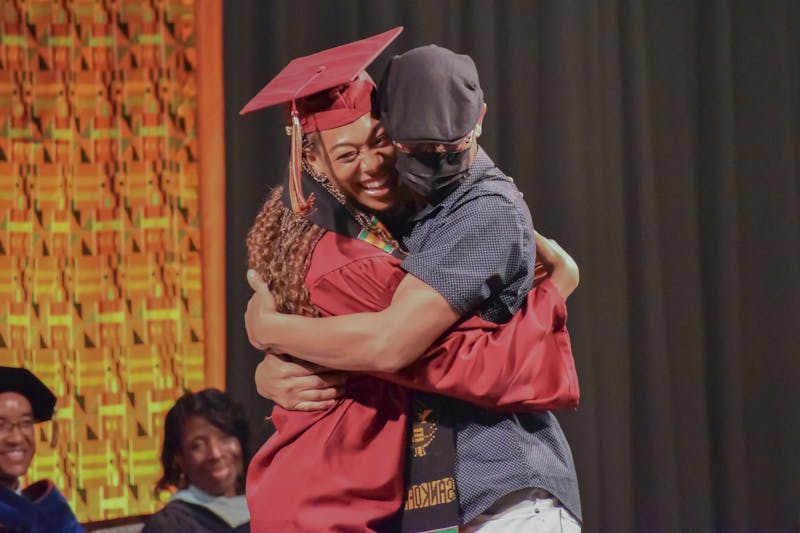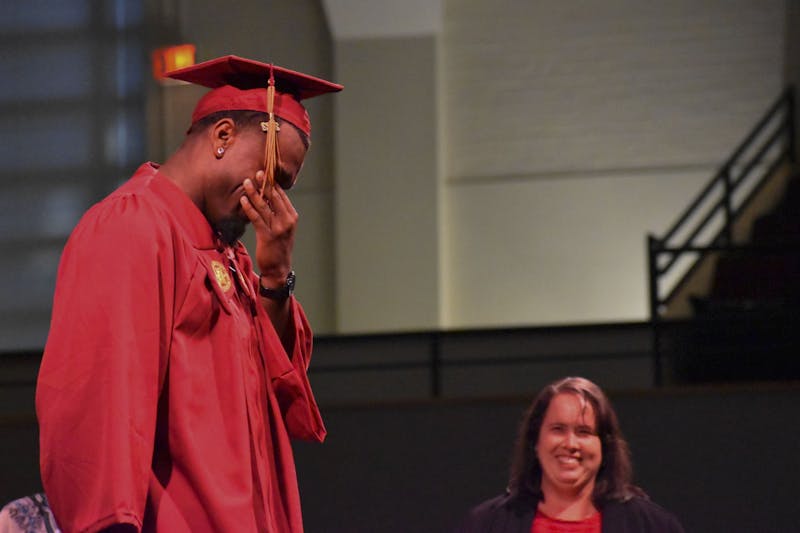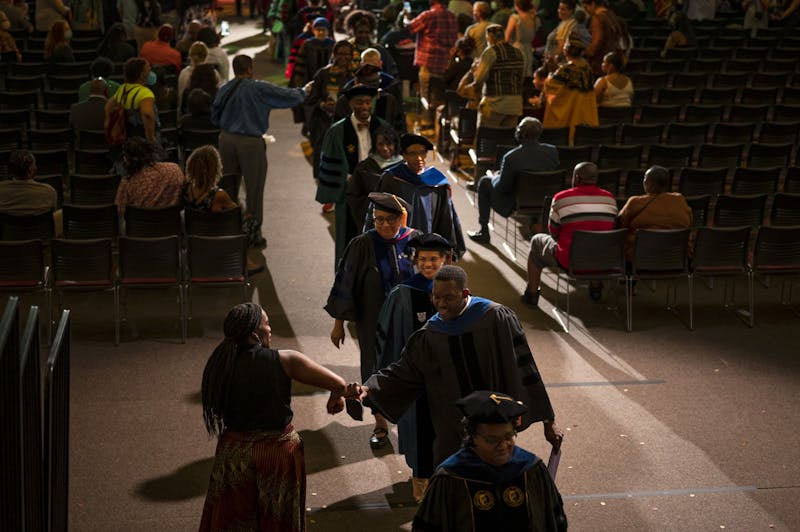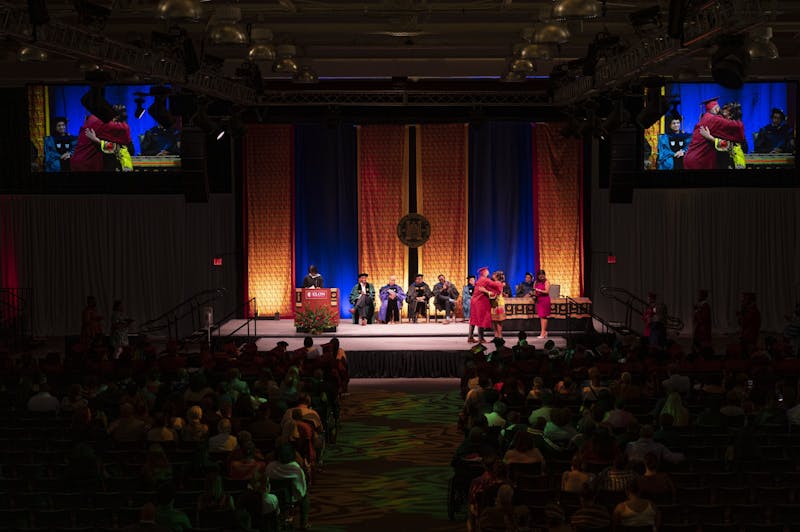Guided by claps, dance and the sound of beating drums, Black graduates of Elon University’s class of 2022 processed into Alumni Gym, where friends, family, faculty and staff lined rows of chairs, proud to celebrate their accomplishments.
Sponsored by the Office of Alumni Engagement, Elon Black Alumni Network and the Center for Race Ethnicity and Diversity Education, graduates of the class of 2022 received a stole made of kente cloth handwoven in the town of Bonwire, Ghana, during the Donning of the Kente Ceremony Thursday.
In many African societies, the kente cloth both celebrates and symbolizes prestige. Tomorrow, during the undergraduate commencement ceremonies, these graduates will wear their kente stoles as a sense of inspiration and representation of their heritage.
This year’s keynote speaker, EBAN President Akilah L. Weaver presented to the audience a West African Adinkra symbol called eban. Translating to fence, the eban symbolizes the same values encouraged by the Elon organization — love, safety and security.
“As you begin your journey in the world as a Black scholar, know that your patience will be tried, your intelligence will be tested, your character will be attacked and your Blackness may even be questioned,” Weaver said.
Looking out to the crowd before her, Weaver said graduates should stay true to themselves, take risks and have fun.
“You are Black excellence,” Weaver said. “As you continue your walk into greatness, find the strength and courage to overcome your moments of adversity, for your battles will not be in vain. Your life has much to gain”
Weaver welcomed the graduates into the EBAN. As they walked across the stage after being donned, their stoles were pinned by a member of the network as a symbol of transition.
Following the Donning of the Kente, associate professor of psychology Buffie Longmire-Avital shared closing remarks and praised Deidra Smith, director of alumni engagement, for creating a space of safety.
“I will have to settle for offering my deepest, most humble thanks for giving Black-identified graduates of Elon and transplants who survived their own experiences at historically white institutions a grand moment to heal, be seen in all levels of our complexity and to be celebrated,” Longmire-Avital said.
A few days before the May 14 Buffalo supermarket massacre, Longmire-Avital received a copy of a book containing unabridged transcripts from the 1871 impeachment trial of North Carolina Gov. William Holden. The transcripts, Longmire-Avital said, contained unedited testimonies of Black residents in Alamance County.
As she skimmed the many pages — evidence of the Ku Klux Klan’s pervasive history in the area — Longmire-Avital said she could feel the residents’ terror. The narrative of Black America, she said, has always been intertwined with the search for space, shelter and safety.
“The history of our people is bursting with stories where space, shelter, safety was unequivocally denied and violently ripped away,” Longmire-Avital said. “To be Black in America is to live with an understanding that the ownership of space and its assumed safety is not freely granted, easily achieved, nor to be expected. But we relentlessly pursue it. We marched for it, we fight for it, we vote for it.”
Longmire-Avital said the evening was a moment to reflect on the spaces and shelters graduates have configured during their time at Elon.
“As a graduate of Elon, remember that your stole is a symbol of the shelter that at least one person constructed for you,” Longmire-Avital said. “And it is an invitation to be embraced by an expansive community of alumni, faculty, staff, family and friends that spans decades, struggles, resistance and hope.”







